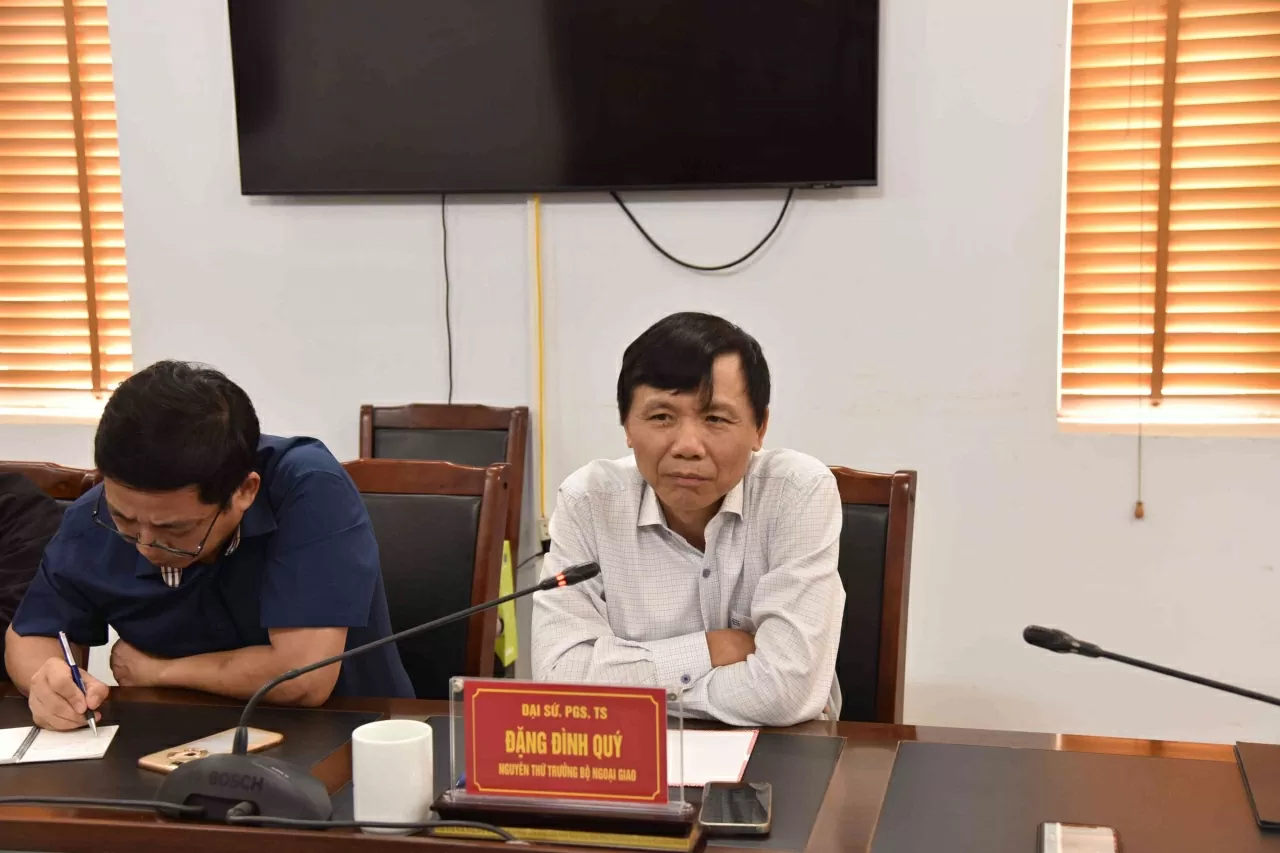 |
| Ambassador, Associate Professor, PhD, former Deputy Minister of Foreign Affairs Dang Dinh Quy spoke at the exchange. (Photo: Xuan Son) |
The delegation of students from the Ministry of Foreign Affairs was led by Ambassador, Associate Professor, PhD, former Deputy Minister of Foreign Affairs Dang Dinh Quy. Also participating in the delegation were former member of the Party Central Committee, former Deputy Minister of Foreign Affairs, former Chairman of the National Border Committee, Ambassador Ho Xuan Son and representatives of the National Border Committee, Ministry of Foreign Affairs.
Receiving and working with the delegation at the Provincial People's Committee Headquarters on June 27 were Permanent Vice Chairman of the People's Committee Pham Duc Toan; Lieutenant Colonel Nguyen Trong Loi, Deputy Commander of the Border Guard Command, Provincial Military Command; Deputy Director of the Department of Foreign Affairs Van Sy Thang... and officers of a number of functional units of Dien Bien province.
During the discussion and learning about the socio-economic development situation and border work, former Deputy Minister of Foreign Affairs Dang Dinh Quy emphasized that Dien Bien is the land of the Fatherland's fence, playing a very special role in protecting the border and developing friendly relations with Laos and China in aspects such as security, politics, socio-economics, and people-to-people exchange.
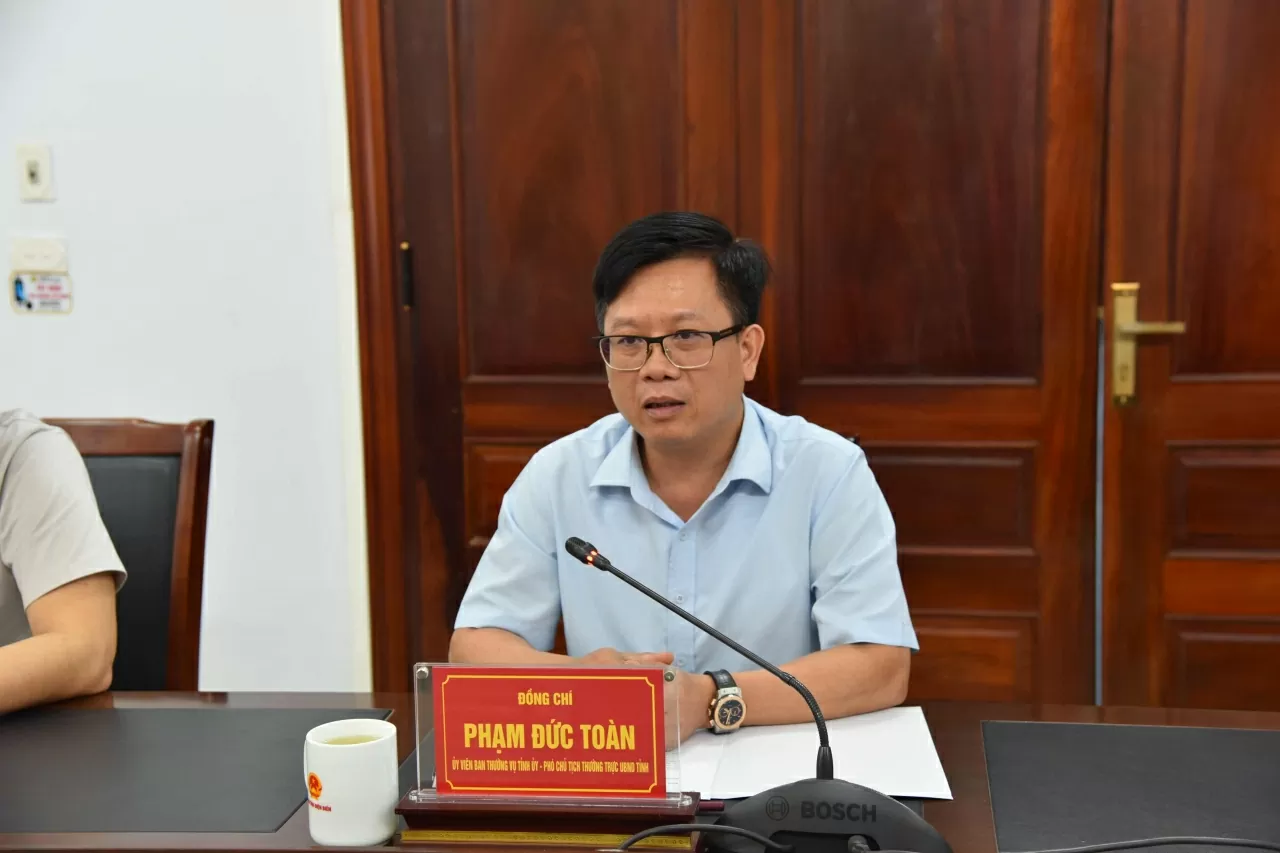 |
| Permanent Vice Chairman of the Dien Bien Provincial People's Committee Pham Duc Toan emphasized that foreign relations between Dien Bien province and the northern provinces of Laos and Yunnan province of China have always been maintained, contributing to building a peaceful, friendly, and developing border. (Photo: Xuan Son) |
The members of the delegation were very honored and proud to visit and learn about the historical land in the northernmost part of the Fatherland, where the Dien Bien Phu victory "resounded throughout the five continents, shook the world" - a brilliant page in the history of the Vietnamese people. Coming to the historical land of Dien Bien, hearing firsthand information about the local construction and development situation, about the implementation of border diplomacy with two neighboring countries, especially with the brotherly Laos, the members of the delegation understood more deeply the difficulties, hardships, and efforts of local officers and soldiers, of "steel men" in the work of protecting the national border, as well as maintaining security and order for socio-economic development in Dien Bien.
According to Pham Duc Toan, Standing Vice Chairman of the Provincial People's Committee, Dien Bien, as the northernmost region of the country, is the only province that shares a border with two countries: Laos and China. The border with Laos is 414.712 km long, bordering two Lao provinces, Phongsaly and Luang Prabang, while the border with China is 40.86 km long.
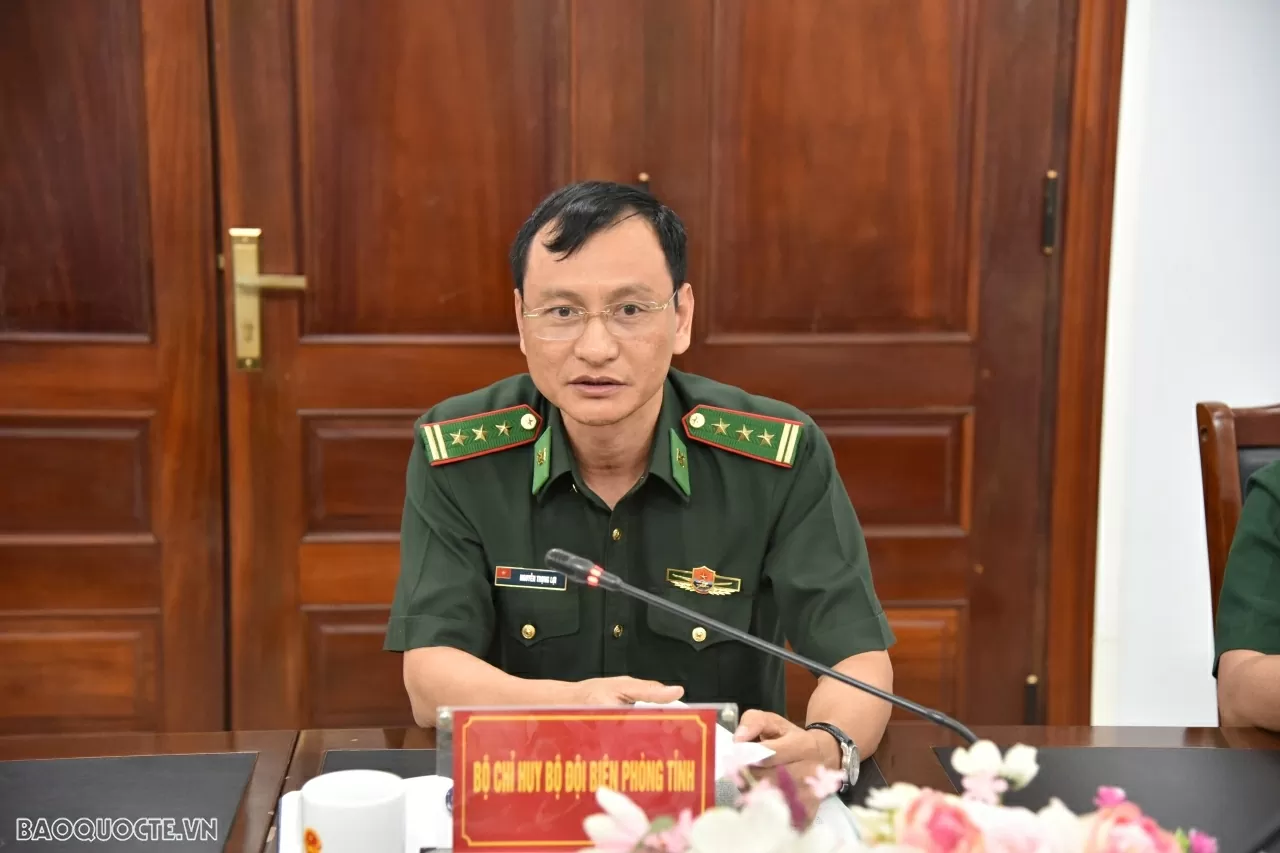 |
| Lieutenant Colonel Nguyen Trong Loi, Deputy Commander of the Border Guard Command, Provincial Military Command, provides information on border management in the province. (Photo: Xuan Son) |
Dien Bien has always clearly defined its responsibilities and tasks in maintaining territorial sovereignty, border security and social order and safety, economic development, and people-to-people exchanges with its neighbors. Over the years, the border management and protection forces of Dien Bien province and the provinces in Laos and China have strictly maintained the implementation of signed legal documents on borders, regularly exchanged information, and coordinated patrols and controls on the border.
People on both sides of the border have strictly complied with the Party's guidelines, policies and the State's laws, regularly exchanged goods, and ensured compliance with the provisions of the Agreement on land border management regulations and border gates as well as the laws of each country. Foreign relations between Dien Bien province and the northern provinces of Laos and Yunnan province, China have always been maintained and increasingly developed, contributing to building a stable, peaceful, friendly, cooperative and developed border.
However, the border area of Dien Bien province still has potential complex security and order issues such as: drug crimes are complicated and tend to increase in the number of cases, number of subjects and quantity of drugs bought, sold and transported across the border; activities violating the Agreement on border regulations by people on both sides of the border such as illegal entry, exit and border crossing.
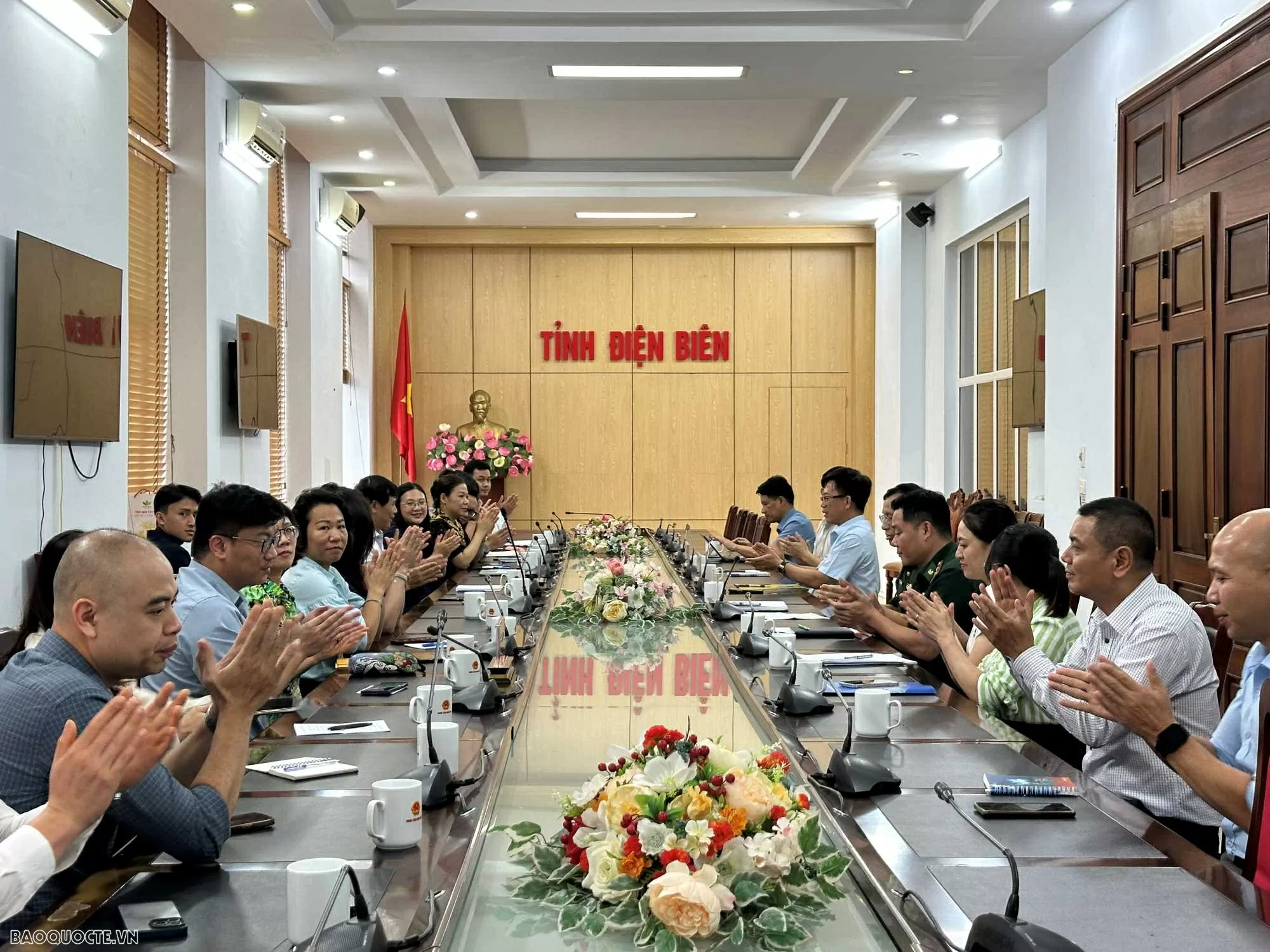 |
| The delegation was pleased with the outstanding achievements and efforts of the officials and forces working in foreign affairs and border management of the province in maintaining the people's trust in the border areas. |
At the meeting, the delegation members actively discussed and raised many questions with representatives of Dien Bien province's leaders and the provincial Military Command about foreign affairs in the province, border management and protection, as well as solutions to strengthen diplomatic coordination between local authorities and the neighboring side.
The working delegation was pleased with the outstanding achievements and efforts of the cadres and forces working on foreign affairs and border affairs of the province in maintaining the people's hearts and minds at the border, creating conditions for the friendly and cooperative relations with the two neighboring countries "crowing together at dawn" Laos and China to become increasingly practical, effective and in-depth.
Providing more information on security protection and border maintenance, Lieutenant Colonel Nguyen Trong Loi, Deputy Commander of the Border Guard Command, Provincial Military Command, informed that in border management, the Provincial Border Guard has coordinated with Lao and Chinese border protection forces to organize unilateral and bilateral patrols; promptly detect and advise superiors to resolve incidents occurring on the border, avoiding being passive and surprised.
The provincial border guard force organizes meetings and exchanges at the provincial and border post/station levels with Laos and China; maintains the movement of twinning between border communities, contributing to building a peaceful, friendly, stable, cooperative, and developing border. In addition, the Dien Bien provincial border guard force actively participates in building a strong national border defense system, assisting people in border areas in building and repairing houses, developing economic models, and encouraging people to actively participate in protecting border sovereignty.
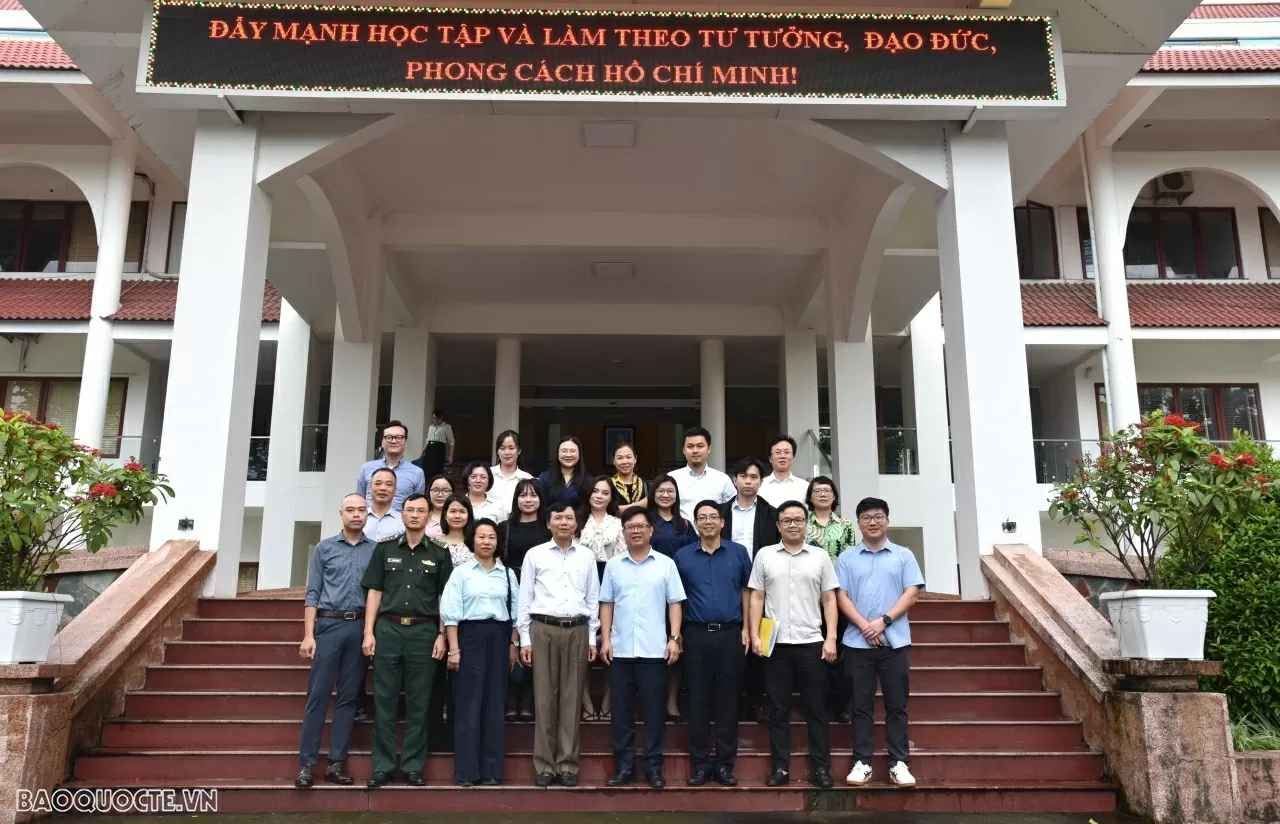 |
| The delegation was pleased with the outstanding achievements and efforts of the officials and forces working in foreign affairs and border management in the province. (Photo: Xuan Son) |
As part of the program, on the morning of June 28th, the delegation visited and learned about key historical sites in Dien Bien. At the A1 Hill historical site, De Castries Bunker, the Victory Monument, and the Victory Museum, the delegation members listened to explanations about the arduous, resourceful, and courageous struggle of our army to seize the strategic Dien Bien Phu stronghold.
Witnessing with their own eyes the artifacts, battle diagrams, and images recreating the campaign of "56 days and nights of digging mountains and sleeping in tunnels/raining rice balls, blood mixed with mud..." of our ancestors, the working group deeply felt the offensive spirit, perseverance, and creativity of the Vietnamese army and people that forced the French colonialists to sign the unconditional surrender document, ending the historic Dien Bien Phu campaign, ending nearly 100 years of French colonial rule.
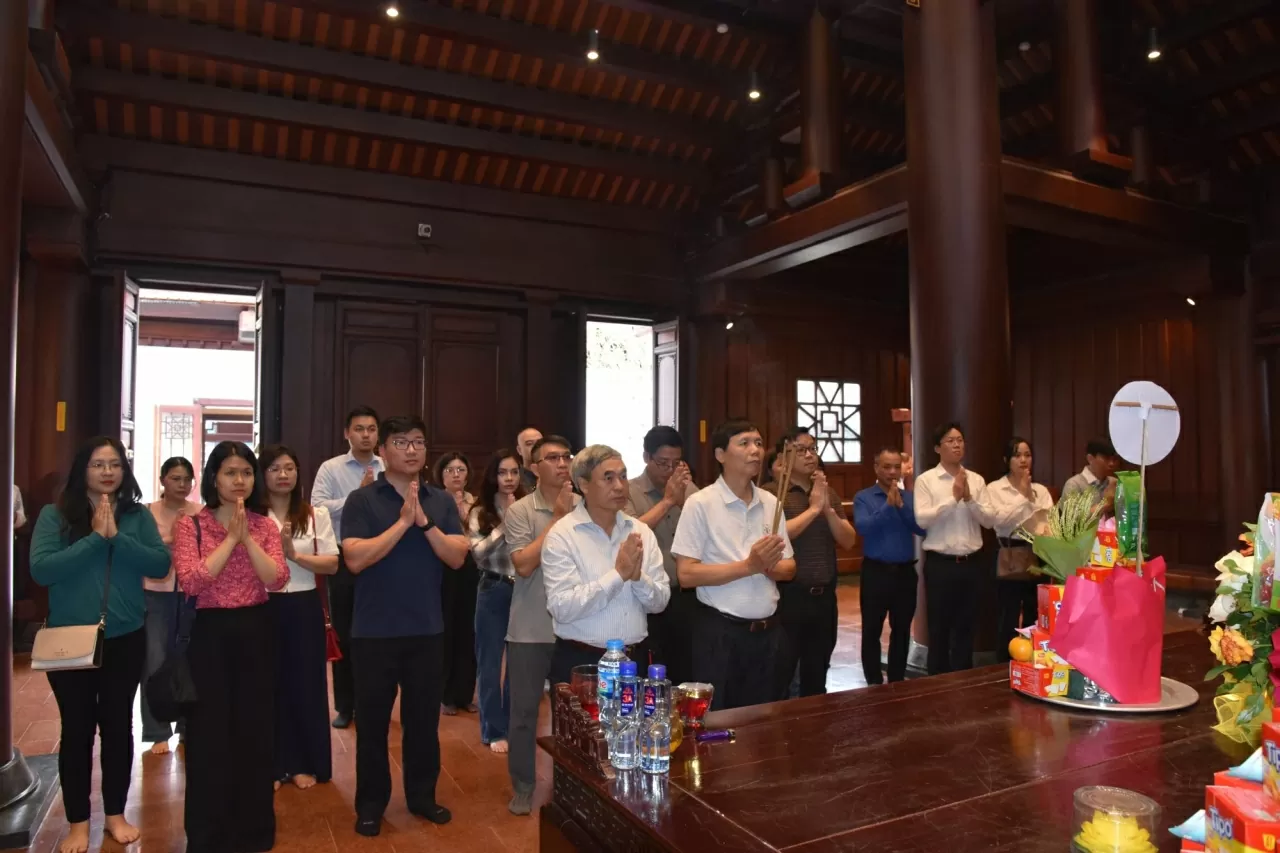 |
| The delegation offered incense at the Dien Bien Phu Martyrs' Temple. (Photo: Xuan Son) |
The delegation also offered incense at the Martyrs' Temple and at the Dien Bien Phu Martyrs' Cemetery. In a solemn atmosphere, the members of the delegation respectfully expressed their infinite gratitude for the blood and sacrifice of the heroic martyrs who fell to protect every inch of the border, bringing independence and peace to the Fatherland. Incense sticks of gratitude, engraved with the moral of "drinking water, remembering its source" were lit by the members of the delegation on many graves with "unidentified" tombstones, further reminding us of a heroic period of the nation.
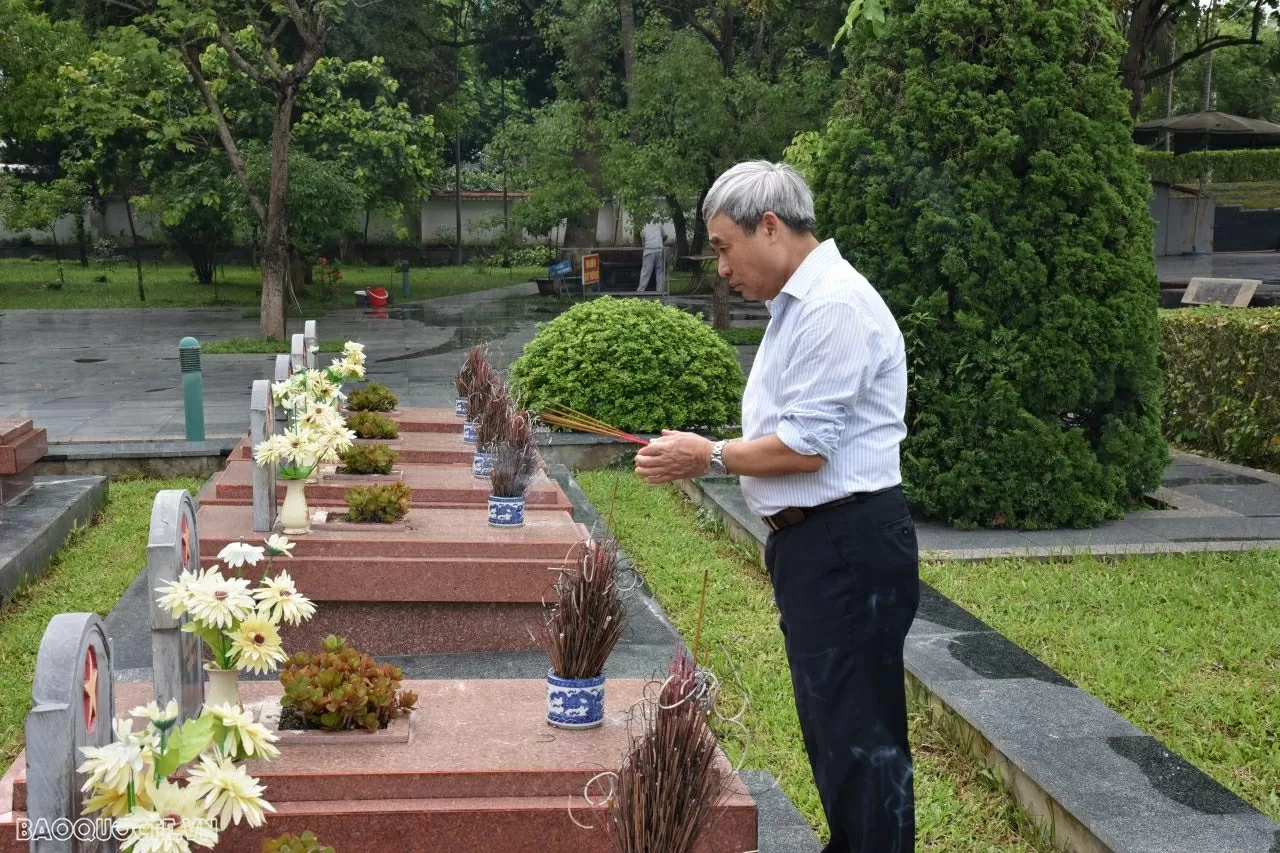 |
| Former Chairman of the National Border Committee, Ho Xuan Son, respectfully offered incense to express his boundless gratitude for the sacrifices of the heroic martyrs who fell to protect every inch of the borderland. (Photo: Xuan Son) |
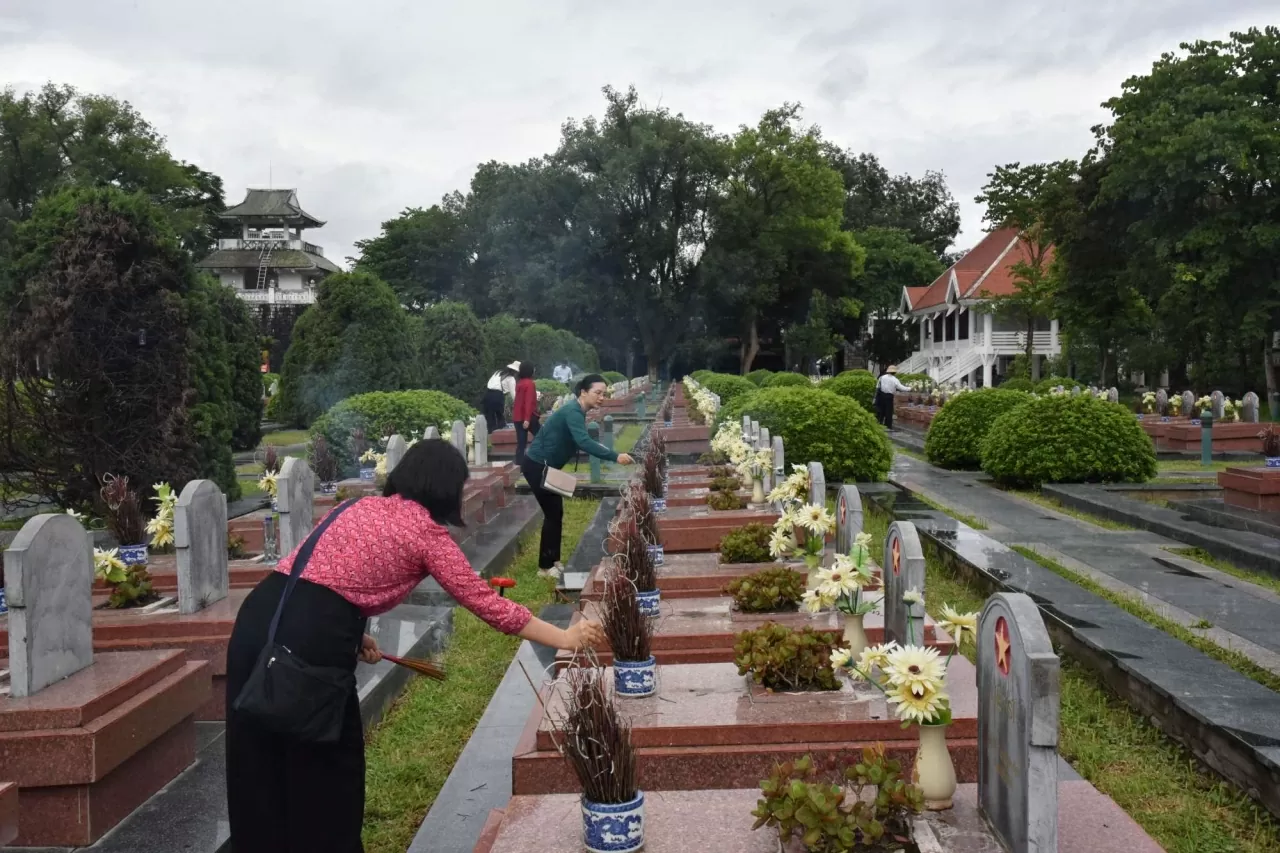 |
| The delegation offered incense at Dien Bien Phu Martyrs' Cemetery. (Photo: Xuan Son) |
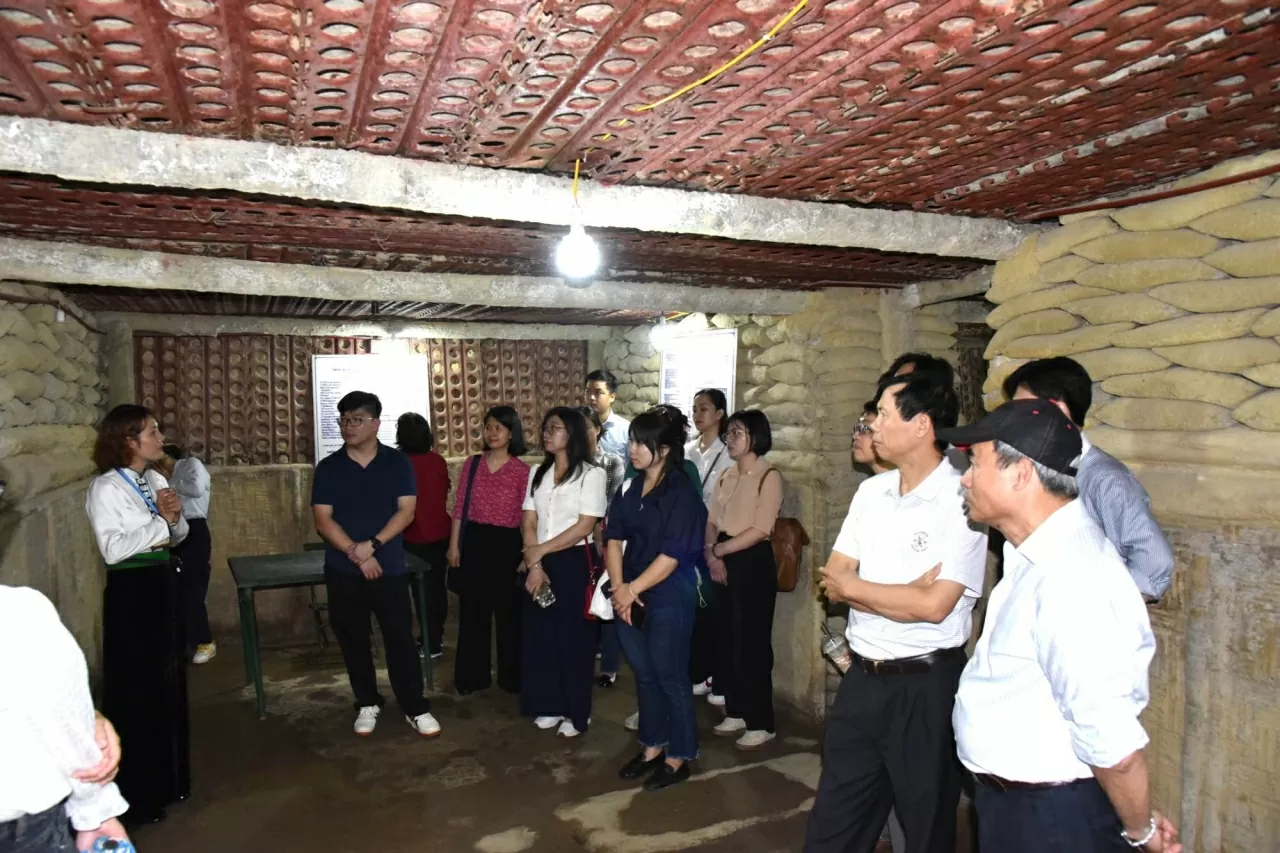 |
| The De Castries bunker is 20 meters long and 8 meters wide, with four rooms inside used as living and working quarters. In this bunker, General De Castries received many high-ranking officials from Britain, France, and the United States, as well as journalists visiting Dien Bien Phu. (Photo: Xuan Son) |
The visit to historical sites left many lingering emotions, added confidence, national pride and a sense of responsibility to preserve the revolutionary achievements for each diplomat, and further strengthened the determination to contribute to the cause of firmly protecting the country's territorial sovereignty and borders and developing peaceful, friendly, cooperative foreign relations for mutual development.
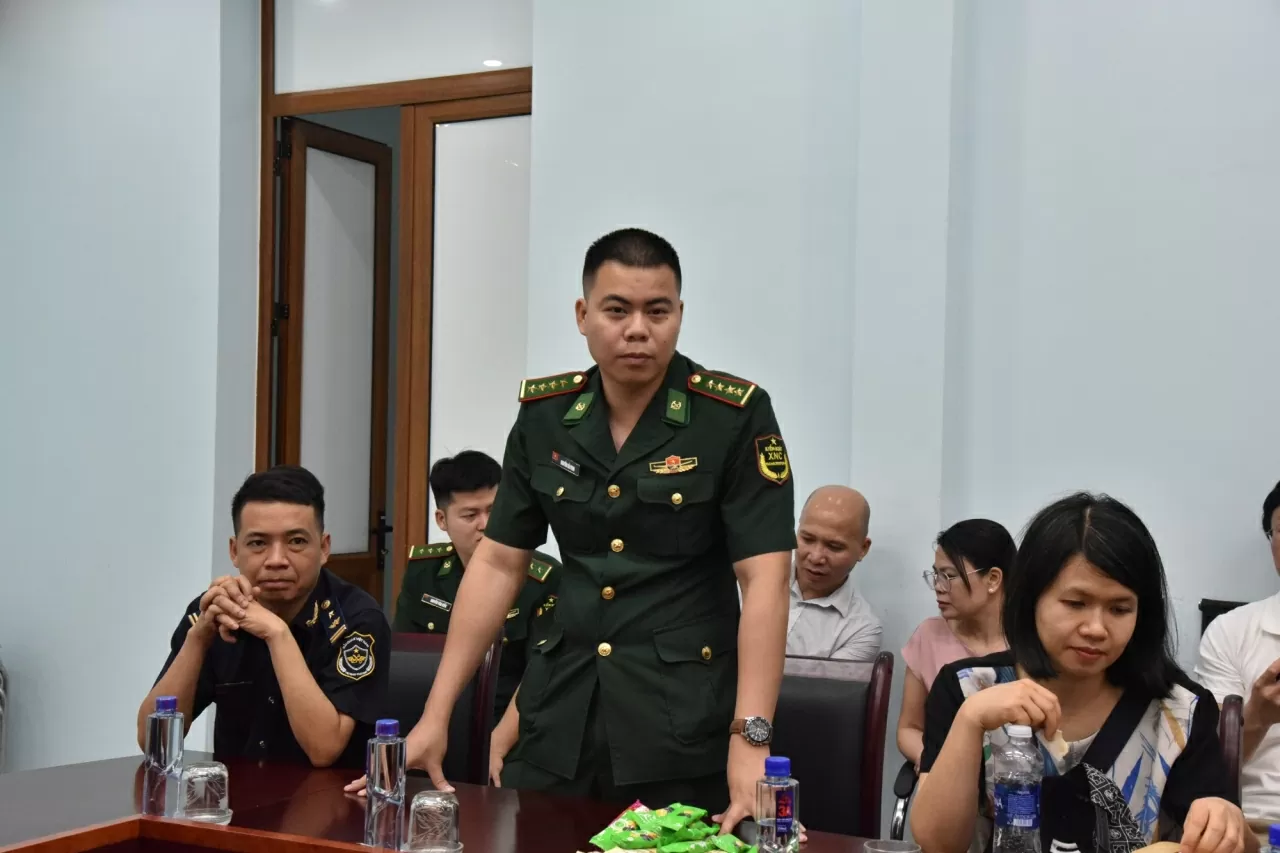 |
| Head of Tay Trang International Border Gate Border Guard Station Nguyen Hai Ninh speaks at the meeting. (Photo: Xuan Son) |
Later that afternoon, the delegation held a meeting with the Tay Trang International Border Gate Border Guard Station. Adjacent to the Pang Hoc border gate in Phongsaly province (Laos), the Tay Trang International Border Gate is located on National Highway 279 – a vital transportation route connecting Northwest Vietnam with Northern Laos, playing a crucial role in the economic, cultural, and tourism development, as well as ensuring national defense and security in the border region.
According to Nguyen Hai Ninh, Head of the Tay Trang International Border Gate Border Control Station, in foreign affairs and border management with Laos, Vietnam always promotes the spirit of respect, solidarity, friendship and sincere assistance to each other. Border guards of both sides regularly coordinate bilateral patrols, exchange information in a timely manner to handle arising situations, contributing to maintaining political security and social order and safety in the border area. Thereby, strengthening trust and enhancing the special solidarity between Vietnam and Laos, in the spirit that the Party, State and people of the two countries have always preserved and cultivated over many generations.
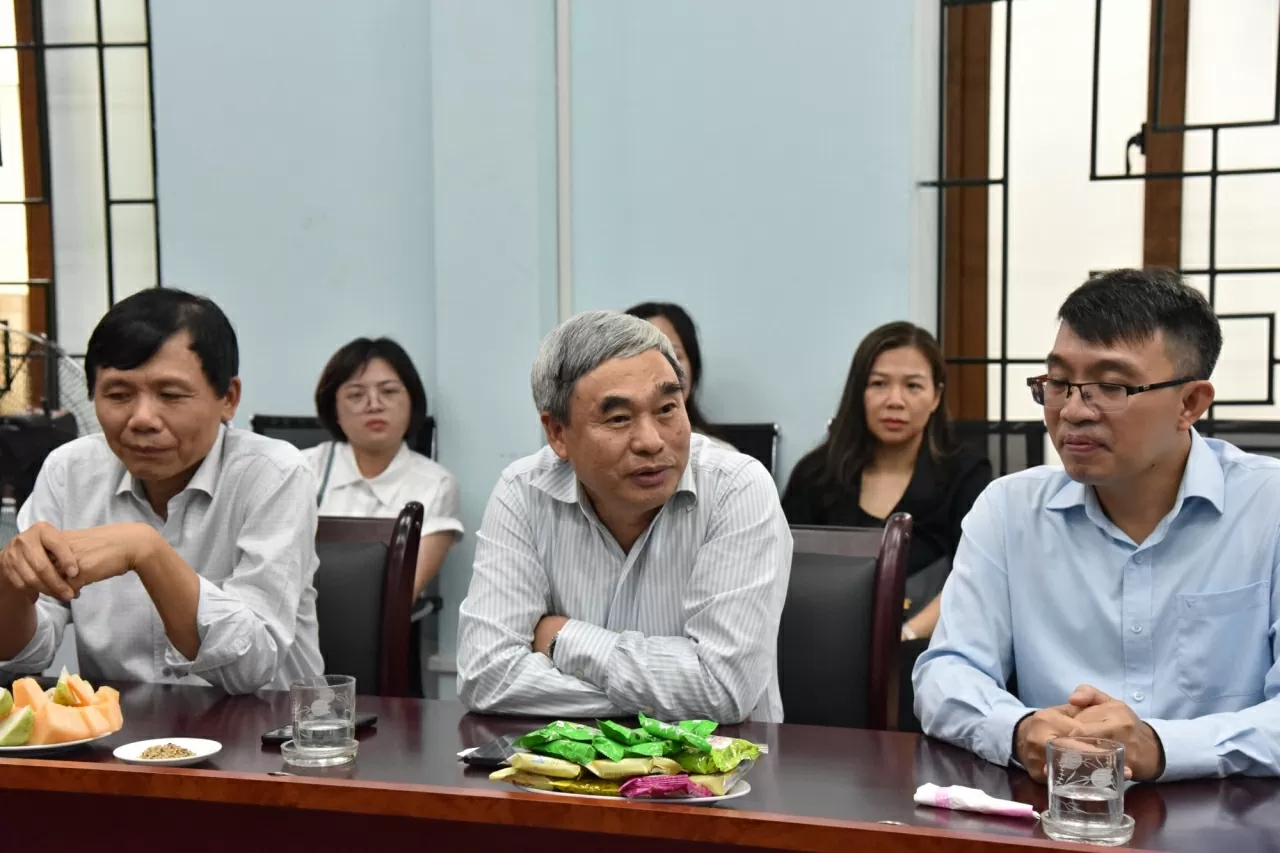 |
| Former Central Committee member, former Deputy Minister of Foreign Affairs, and former Chairman of the National Border Committee, Ho Xuan Son, shared his experience in border and territorial work during a working session at the Tay Trang International Border Gate Border Guard Station. (Photo: Xuan Son) |
During the exchange, former Central Committee member and former Deputy Minister of Foreign Affairs Ho Xuan Son provided an overview of the history of Vietnam's border formation and some characteristics of border relations between our country and neighboring countries.
Sharing with diplomatic officers and soldiers working in border management and protection, Mr. Ho Xuan Son reiterated the lesson of "five knowledges", in which he especially emphasized the three knowledges of "knowing oneself, knowing others, knowing the times". Knowing our traditional history, knowing our strengths in border negotiations; knowing the other side's advantages and limitations to prepare response plans; knowing the regional and international situation, analyzing which factors can affect border and territorial issues.
During negotiations, one must apply the principle of "maintaining constancy while adapting to change," being steadfast in principles and flexible in tactics, while keeping a "warm heart and a cool head." According to former Deputy Minister of Foreign Affairs Ho Xuan Son, two core principles must be adhered to during the process: the sacred sovereignty of the Fatherland is non-negotiable; and always strictly follow and implement directives from superiors, never independently resolving issues that require consultation or advice.
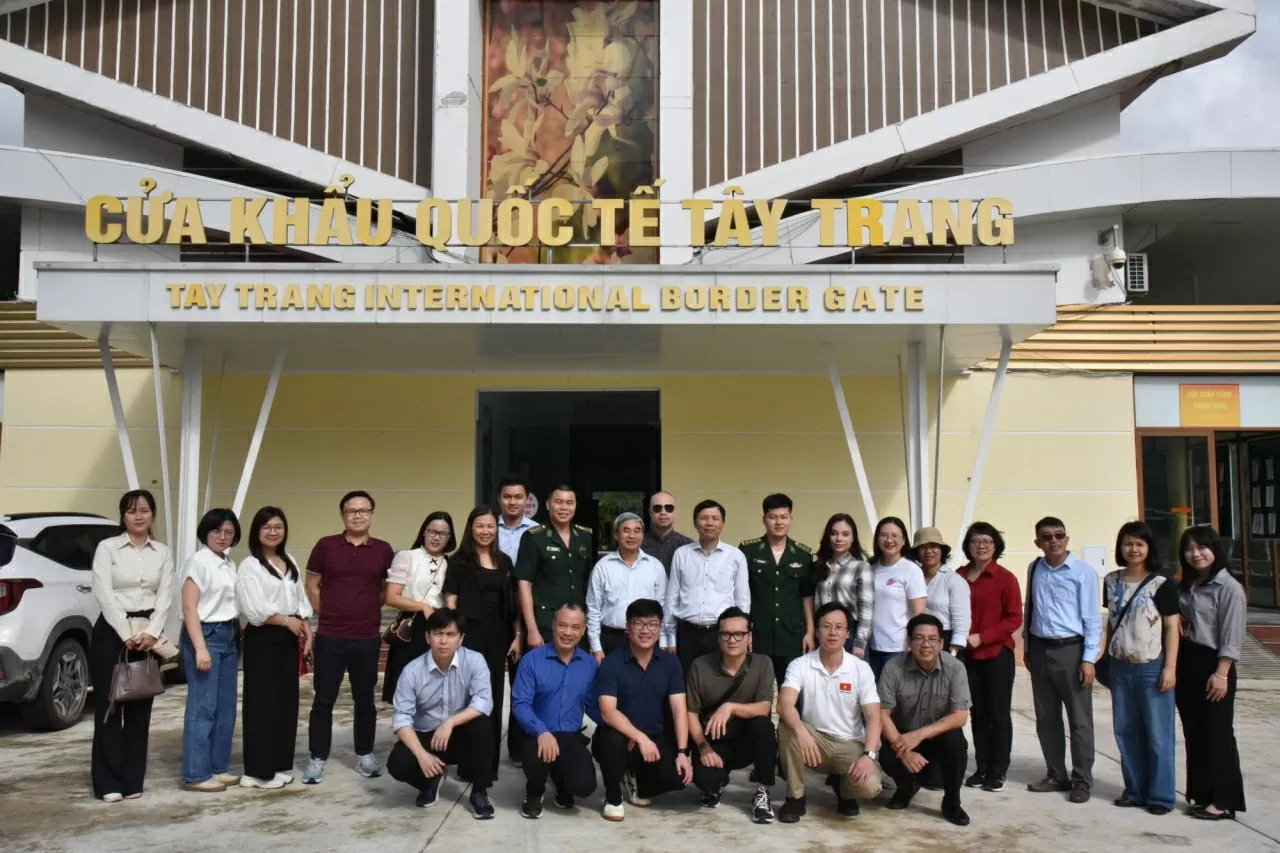 |
| The group took a souvenir photo at Tay Trang international border gate. (Photo: Xuan Son) |
Concluding the working trip, learning about the practical work of border diplomacy, the diplomats have gained many valuable lessons, not only in terms of territorial knowledge and border history, but also in understanding and appreciating the silent sacrifices at the Fatherland's border. This will be a solid spiritual foundation and practical experience for each diplomat to be more courageous and persistent in protecting sovereignty, fostering neighborly friendship, building a peaceful, stable and long-term developed border.
Source: https://baoquocte.vn/hon-duc-ban-linh-ngoai-giao-tu-thuc-tien-bien-cuong-to-quoc-319459.html










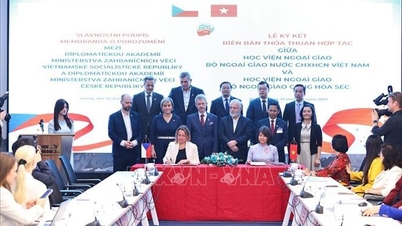

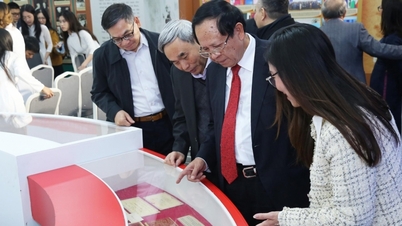
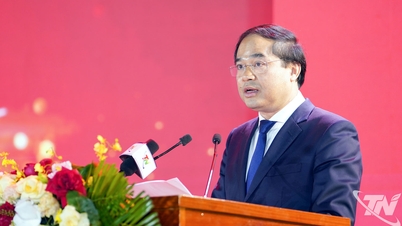

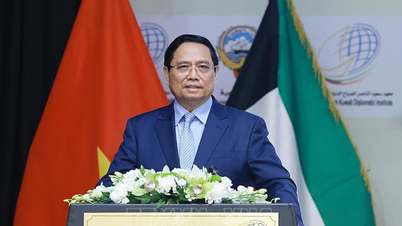
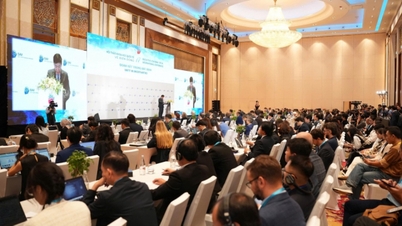
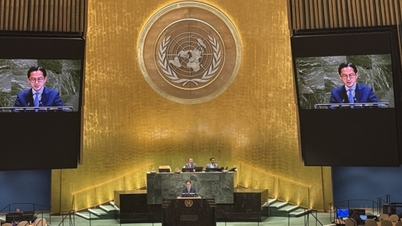

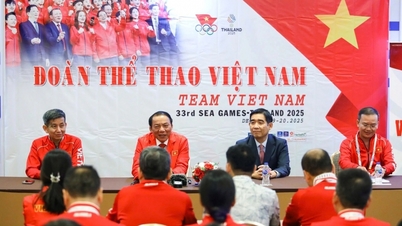

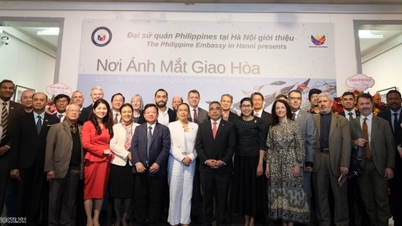





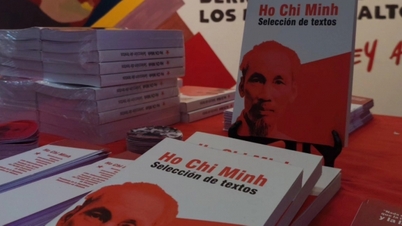
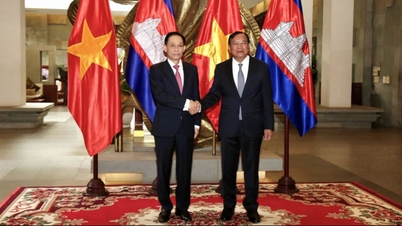
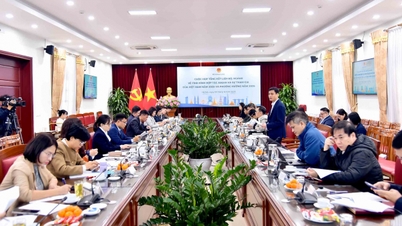

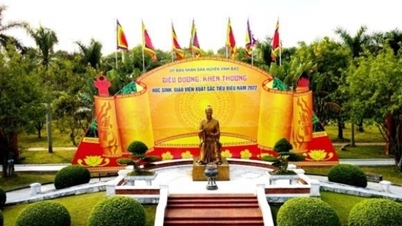






![[Video] The craft of making Dong Ho folk paintings has been inscribed by UNESCO on the List of Crafts in Need of Urgent Safeguarding.](https://vphoto.vietnam.vn/thumb/402x226/vietnam/resource/IMAGE/2025/12/10/1765350246533_tranh-dong-ho-734-jpg.webp)



























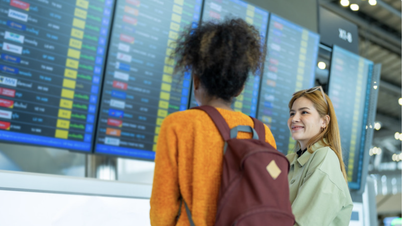




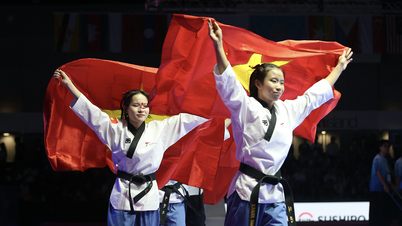


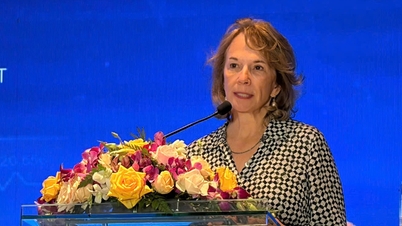


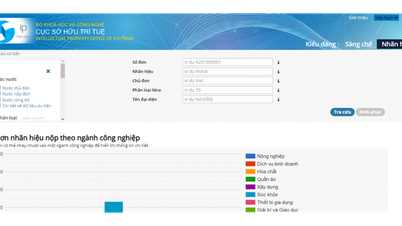
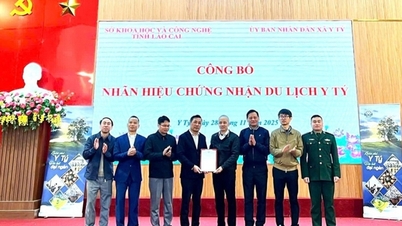
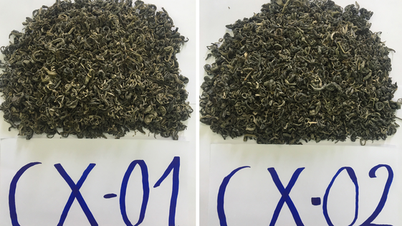
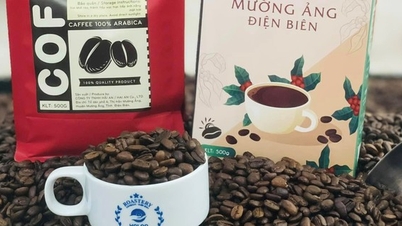
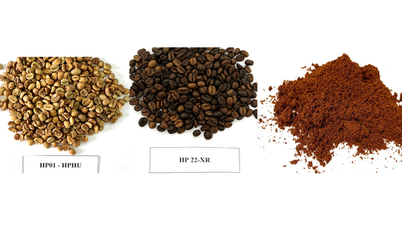
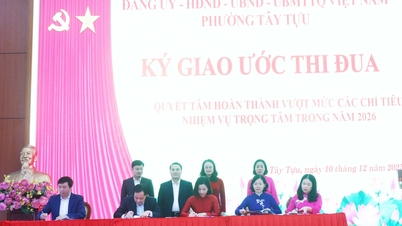
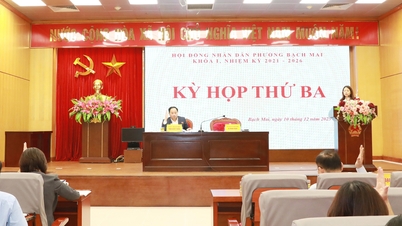
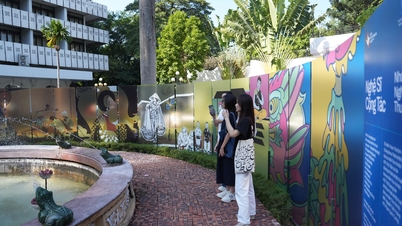

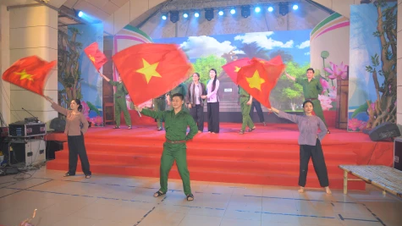

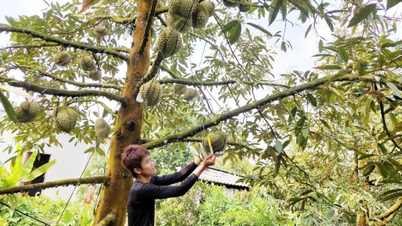
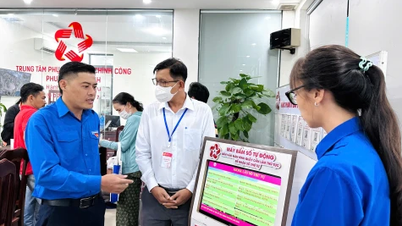











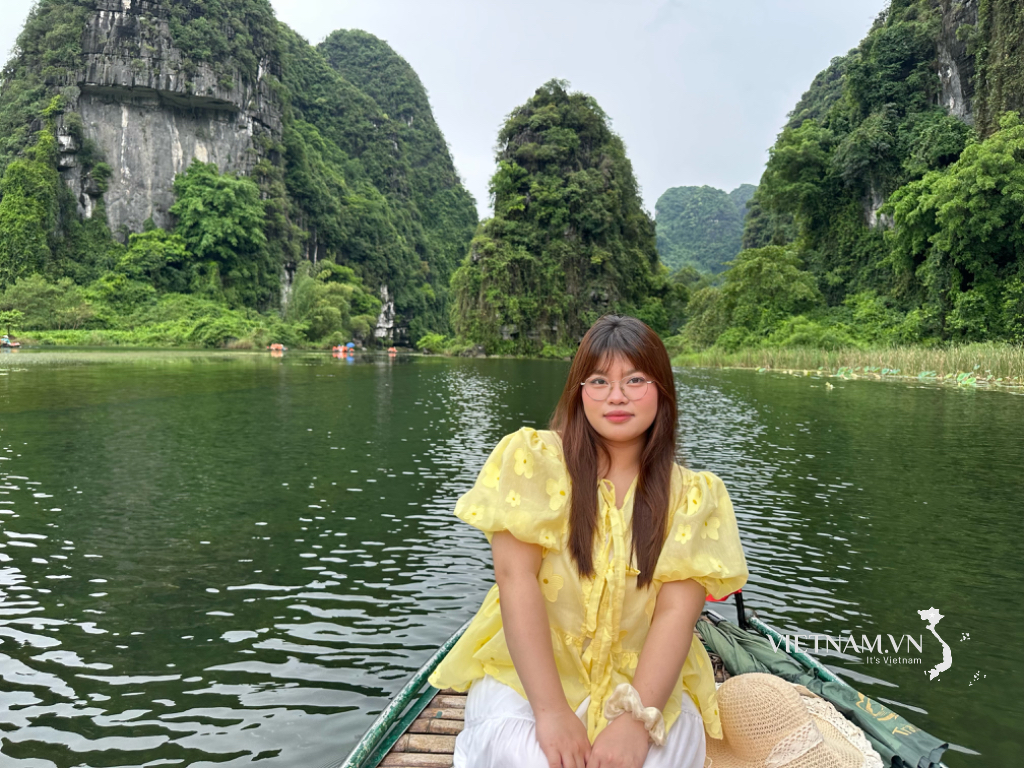

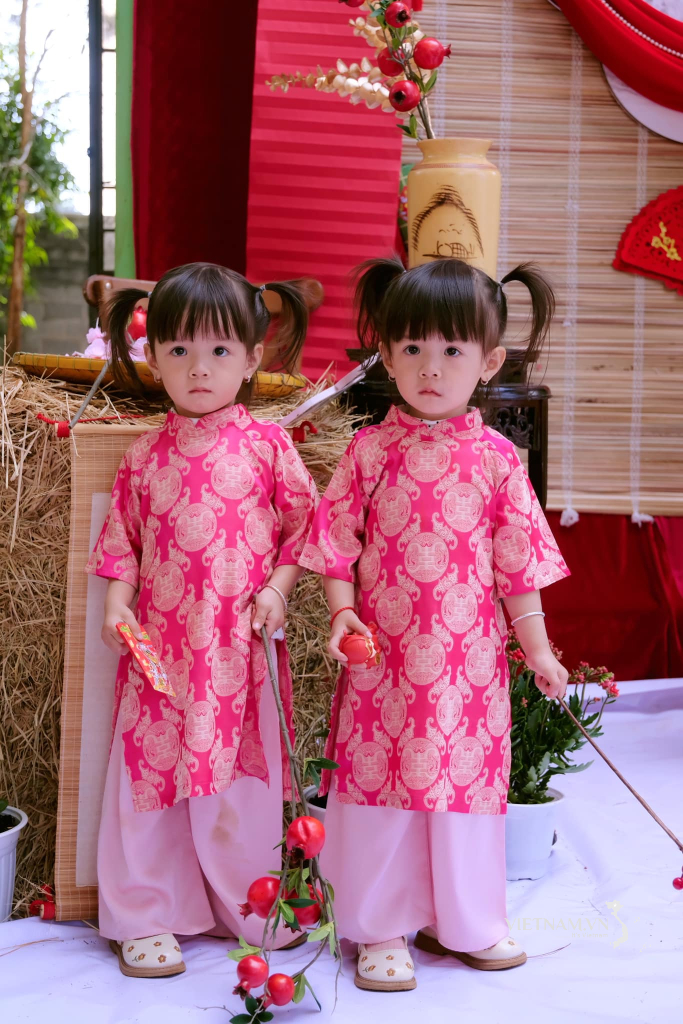




Comment (0)